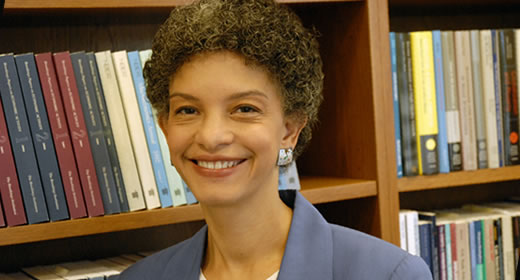
Many of you will remember Ned Gramlich, who was a beloved faculty member at the Ford School for three decades. Last week, as part of our centennial celebrations, we honored Ned with a day-long conference hosted at the Federal Reserve Board headquarters in Washington, DC. (Thank you, Paul Courant, for all you did to organize such a meaningful event). While officially titled, "Honoring Ned Gramlich and the Importance of Policy Research," about halfway through the morning it was rebranded the "Ned was right" conference, since one impressive speaker after another shared stories about Ned's tremendous foresight (as well as his warmth, humor, and collegiality).
Legendary Ford School faculty members like Ned Gramlich and Arthur Bromage set a high bar for all of us, but today's Ford School faculty members are living up to the challenge by doing remarkable work in the classroom, and in the world. They engage with vital policy issues, contribute valuable new knowledge, and help policymakers identify actionable solutions to critically important challenges–and that's beyond the incredibly important work they do as teachers and mentors.
Megan Tompkins-Stange is just one example. This year, she launched a marvelous new philanthropy course in which students have the opportunity to become grantmakers themselves. The students were tasked with giving away more than $50,000–and the experience was a powerful way for them to come to understand the challenges philanthropists face as they invest in transformational change.
Even in the summer, when our policy students hop trains, planes, busses, and cars to work and intern all around the world, our faculty keep busy developing new courses, recruiting visiting speakers, pursuing their own policy research, engaging with policymakers, and more.
They don't all take a break from teaching, either. During the summer, the Ford School runs an intensive training institute for students from backgrounds historically underrepresented in public policy settings. The Public Policy and International Affairs program, which we've offered (free of charge) for more than three decades, began this week and will run through the end of July. So on Monday morning, the faculty, staff, and I had the pleasure of welcoming 18 truly impressive students, with a broad range of interests and experiences, during a kickoff breakfast in the student lounge. Then we sent them off to the first of many econ classes they'll take in the weeks ahead.
In April the Supreme Court upheld the decision of Michigan citizens to ban race-conscious admissions at the state's college and universities. So programs like our junior summer institute are more critical than ever as we seek to bring more diverse leaders to the fields of public policy and international affairs, ensuring that tomorrow's policymakers reflect the changing face of our nation.
Sincerely,
Susan M. Collins
Joan and Sanford Weill Dean of Public Policy